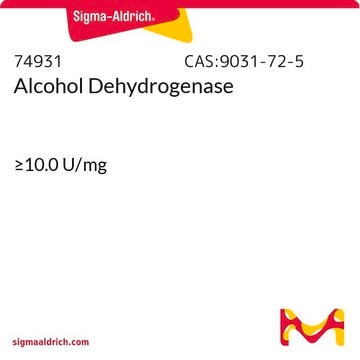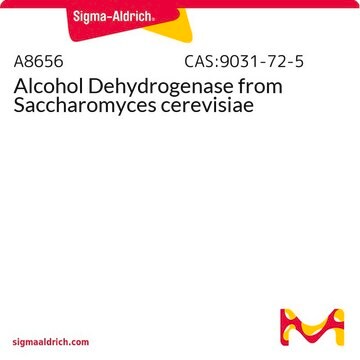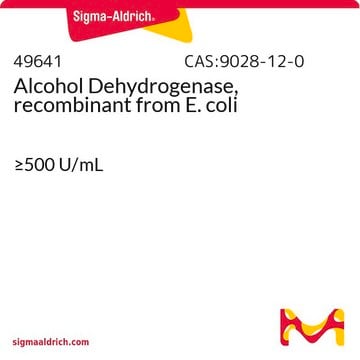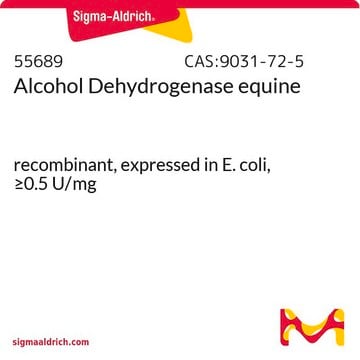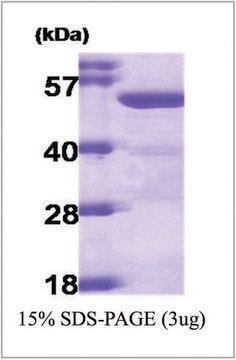MAK053
Alcohol Dehydrogenase Activity Assay Kit
sufficient for 100 colorimetric tests
About This Item
Produits recommandés
Utilisation
sufficient for 100 colorimetric tests
Méthode de détection
colorimetric
Maladie(s) pertinente(s)
gastrointestinal diseases
Température de stockage
−20°C
Informations sur le gène
human ... ADH1A(124) , ADH1B(125) , ADH1C(126) , ADH4(127) , ADH5(128) , ADH6(130) , ADH7(131)
mouse ... ADH1C(11522) , ADH4(26876) , ADH5(11532) , ADH6A(69117) , ADH7(11529)
rat ... ADH1C(24172) , ADH4(29646) , ADH5(100145871) , ADH6(310903) , ADH6A(295498) , ADH7(171178)
Description générale
Application
Adéquation
Principe
Remplacé(e)(s) par
Mention d'avertissement
Danger
Mentions de danger
Conseils de prudence
Classification des risques
Aquatic Chronic 3 - Eye Irrit. 2 - Flam. Liq. 2
Code de la classe de stockage
3 - Flammable liquids
Point d'éclair (°F)
53.6 °F - closed cup
Point d'éclair (°C)
12.0 °C - closed cup
Certificats d'analyse (COA)
Recherchez un Certificats d'analyse (COA) en saisissant le numéro de lot du produit. Les numéros de lot figurent sur l'étiquette du produit après les mots "Lot" ou "Batch".
Déjà en possession de ce produit ?
Retrouvez la documentation relative aux produits que vous avez récemment achetés dans la Bibliothèque de documents.
Les clients ont également consulté
Protocoles
To measure alcohol dehydrogenase activity, this assay uses β-nicotinamide adenine dinucleotide phosphate and a continuous spectrophotometric rate determination at 340 nm.
Notre équipe de scientifiques dispose d'une expérience dans tous les secteurs de la recherche, notamment en sciences de la vie, science des matériaux, synthèse chimique, chromatographie, analyse et dans de nombreux autres domaines..
Contacter notre Service technique


